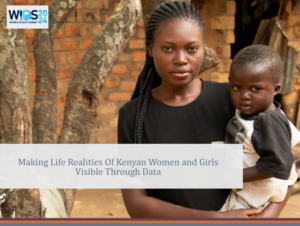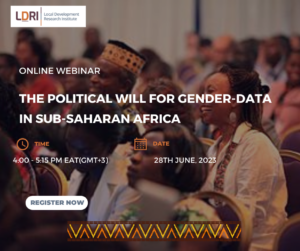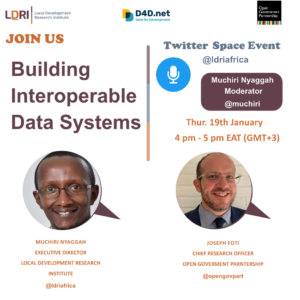![]()
Perspectives on Open Data: Sierra Leone

AODN had a chance to meet with Amos Lasana from Sierra Leone, an AODN Fellow – 2019 on his perspectives on Open Data in his country.
Prior to 2013, there was very little work in terms of making Open Data and transparency a priority, let alone making any policies to influence its implementation. In 2009, the Ministry of Information and Telecommunication published the National ICT Policy. This policy was aimed at enacting Cyber laws relating to intellectual property and copyrights, data protection and security, free access to information, etc. However, the policy is yet to be enacted as legislation and become law.
In 2013, the Right to Access Information Act, 2013 was passed, and with it came the establishment of the Right to Access Information Commission (RAIC). The Act sets out to provide a framework for the ‘disclosure of information held by public authorities or by persons providing services for them and to provide for other related matters’. The existence of structures and processes making it possible for citizens to request information from public institutions provides a bedrock for transparency and accountability as a precondition for good governance. In 2013, Sierra Leone also joined the Open Government Partnership a voluntary international partnership that brings together government and civil society to promote ‘accountable, responsive and inclusive governance’. Through the OGP, Sierra Leone has made open data-driven commitments in its National Action Plans (NAPs) such as commitments on Foreign Aid Transparency and Fiscal Transparency and Open Budget among others.
Since then, there has been significant progress in terms of Open Data. In 2015, the Sierra Leone Open Data Portal was set up under the Open Data Program, and it was relaunched in March 2017. The aim of this Portal was to increase transparency, create economic value, and facilitate data-driven policymaking. The significance of this was that it put Sierra Leone on the pathway to joining the Open Data Revolution.
In September 2016, Sierra Leone Adopted the Open Data Charter which is a ‘collaboration for the increased adoption and implementation of shared open data principles, standards and good practices across sectors around the world’. As part of its adoption, Sierra Leone made a commitment to integrate the charter with its own Vision for 2035, Africa’s Agenda 2063 and the Sustainable Development Goals, cementing the place of open data in its development agenda. This move brought Sierra Leone into the arena of Open Data enthusiasts pushing for a world with greater transparency, accountability.
Subsequently, the Open Data Readiness Assessment (ODRA) was published. ODRA is an assessment of the current Open Data Situation in Sierra Leone and presented an Eight Dimension approach to moving the Open Data movement in Sierra Leone forward. Among key recommendations from the report are; digitization of paper-based information, launching of pilot projects to showcase value of open data, facilitation of data disclosure, inventory and release of key datasets, review and introduction of open data provisions in legal and policy framework, sustainable financing for the open data initiative, establishment and securing of the leadership, structure and functioning of the Open Data Initiative and building data literacy and ICT skills of all stakeholders. RAIC is on course to implement some of these recommendations such as the introduction of open data provisions in the legal and policy framework.
Challenge
Open data is a phenomenon that Sierra Leone continues to embrace however not without challenges. So far, the greatest challenge facing Open Data in Sierra Leone is a lack of awareness among the populace. Most citizens are unaware of the existence of the Right to Access Information Act, let alone all the rights that come attached to it. While section 11 of the Right to Access Information Act provides for proactive disclosure and makes it compulsory by law for all institutions to publish information that the public may need, as long as such information is not against the public interest or against national security, knowledge on the existence of the law is still not very. Thus, what is greatly needed is awareness about the existence of such laws.
The Right to Access Information Commission has embarked on awareness-raising events and programs for the public, some of which will be supported through the Africa Open Data Fellowship. Over the course of the next few months, I will be sharing findings from my research and work on open data in Sierra Leone through the fellowship.




